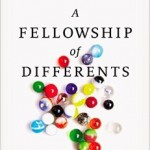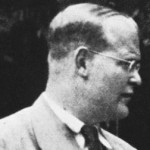 [ I’m taking a break today from the “Slow Church and the Urgency of Justice” series, which should return in the next couple of days]
[ I’m taking a break today from the “Slow Church and the Urgency of Justice” series, which should return in the next couple of days]
There’s a chapter in the forthcoming book that John and I are calling “Taste and See that the Lord is Good.” Here’s a snapshot of the basic theme of the chapter:
God created us to flourish and to know the joy of life. Just as something is lost in the taste and experience of a fast food meal, so too a key part of what is lost in the industrialization of Christianity is the joy of being together, of knowing and being known in community. Industrialized Christianity relies heavily upon quantity – more souls saved, bigger offerings, bigger buildings – and in contrast, we believe that as we slow down the pace of our life together, we will begin to appreciate anew the rich and delectable quality of the life that we’ve been given with our brothers and sisters.
Here’s a few thoughts though on how these pleasures of Christian community get complicated. I recently shared these as part of a communion meditation here at Englewood Christian Church (I thought the meditation was recorded, but it turns out that it wasn’t, so I will have to reconstruct my thoughts from memory).
I wonder if life in the church is a lot like a coffee bean? We cannot experience the pleasures of coffee directly from the bean, but rather indirectly, as the bean is roasted (put through the fire, so to speak), ground to a powder and subjected to boiling water. Similarly, while I am confident that God desires us to find joy and deep pleasure in the local congregation to which we belong, I am also convinced that it’s futile to seek that joy directly. Instead, in one of the great paradoxes of the Gospel, we find that supreme joy indirectly as we go through the fire, become ground up and poured out for each other (so to speak). This process of giving ourselves up for one another is at the very heart of the way of Jesus, “who for the joy set before Him endured the cross, despising the shame, and has sat down at the right hand of the throne of God.”
Indeed, in the very elements of the Eucharist — the bread and the wine, the symbols of Christ’s being poured out on our behalf — we are reminded of the grinding and baking of the wheat and the stomping and patient fermenting of the grapes that are necessary for us to enjoy the Eucharist meal. In our consumer culture, we are constantly being bombarded with messages that urge us to seek happiness (typically by buying this car or that sandwich, etc.). No, we are told that “whoever loses him/her-self for the sake of Jesus (and I would add, the reconciliation that he embodied) will find it.” It is in the local congregation that we learn how to be poured out for one another and for our neighbors, preferring others’ joy to our own, and it is in this Eucharistic way that we will find the deep joy that Jesus himself knew.
Like the coffee bean — as well as the wheat and the grape that provide our Eucharist — may we go through the fire, be ground up and poured out for others. It is in this way that we will come to know the deepest joy for which we were created.












